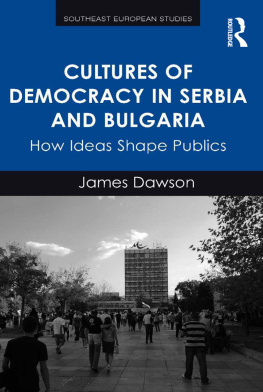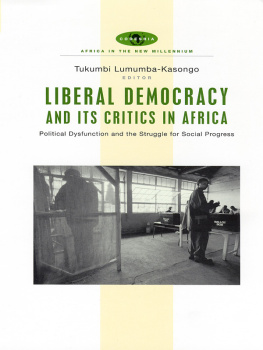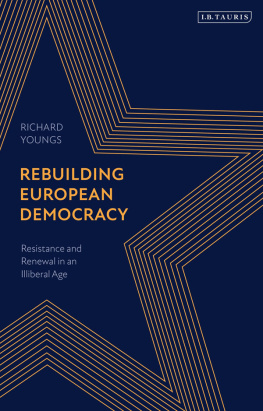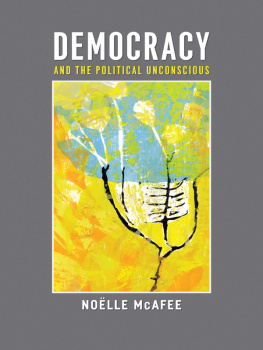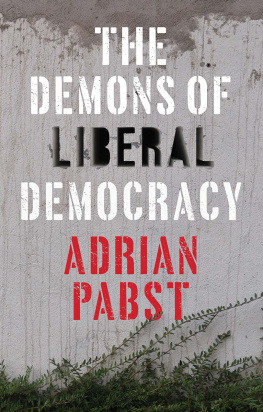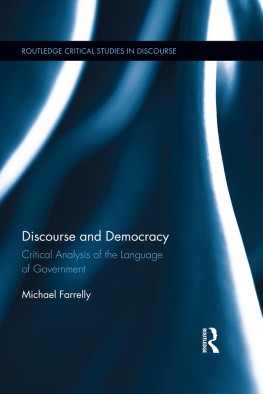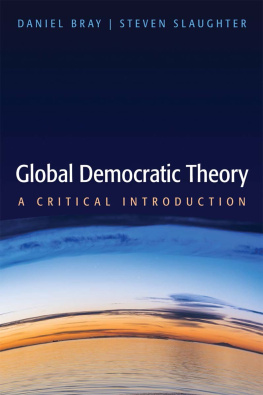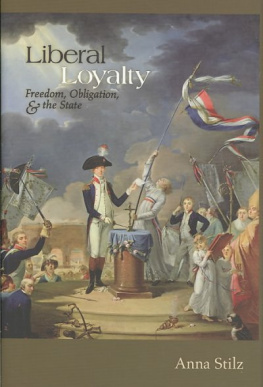CULTURES OF DEMOCRACY IN SERBIA AND BULGARIA
Through a comparison of public spheres in Bulgaria and Serbia, this book illustrates the weaknesses of current measurements of democracy. Dawsons ethnographic approach allows him to demonstrate the counterintuitive conclusion that Serbia has a more solid foundation for liberal democracy than EU member Bulgaria. Of tremendous interest for anyone interested in democratic transitions, democracy promotion, and liberal theory more generally.
Chip Gagnon, Ithaca College, USA
There is a troubling gap in the literature on democratic transformations: the cultural dimension of these processes is insufficiently explored and poorly understood. This book fills this gap in the most persuasive manner. Based on an ingeniously conceived ethnography of public spaces, carefully calibrated comparative design, and masterfully collected evidence, the author shows that the ranking of political systems based on the formalist criteria, employed for example by Freedom House, is not as conclusive as it is often assumed. A different picture arguably more accurate emerges when the political cultures revealed through the detailed analysis of public debates are compared.
Jan Kubik, Rutgers University, USA
Cultures of Democracy in Serbia and Bulgaria is a timely and much needed text. It is an important contribution to the studies of the public sphere, as it raises important questions about the nature of democracy, democratic participation and ways of measuring it. The book raises crucial questions about formalised measurements of democracy, and explores the public spheres as sites of contention and complication. Moreover, Cultures of Democracy provides new and fascinating empirical material on Serbian and Bulgarian public spheres, making it a welcome addition to the study of South Eastern Europe.
Jelena Obradovic-Wochnik, Aston University, UK
Southeast European Studies
Series Editor: Florian Bieber, Centre for Southeast European Studies, University of Graz, Austria
The Balkans are a region of Europe widely associated over the past decades with violence and war. Beyond this violence, the region has experienced rapid change in recent times, including democratization and economic and social transformation. New scholarship is emerging which seeks to move away from the focus on violence alone to an understanding of the region in a broader context drawing on new empirical research.
The Southeast European Studies Series seeks to provide a forum for this new scholarship. Publishing cutting-edge, original research and contributing to a more profound understanding of Southeastern Europe while focusing on contemporary perspectives the series aims to explain the past and seeks to examine how it shapes the present. Focusing on original empirical research and innovative theoretical perspectives on the region, the series includes original monographs and edited collections. It is interdisciplinary in scope, publishing high-level research in political science, history, anthropology, sociology, law and economics and accessible to readers interested in Southeast Europe and beyond.
Forthcoming titles in the series
After Ethnic Conflict
Policy-making in Post-conflict Bosnia and Herzegovina and Macedonia
Cvete Koneska
A Discourse Analysis of Corruption
Instituting Neoliberalism Against Corruption in Albania, 19982005
Blendi Kajsiu
State Building and Democratization in Bosnia and Herzegovina
Edited by Soeren Keil and Valery Perry
Austerity and The Third Sector in Greece
Civil Society at the European Frontline
Edited by Jennifer Clarke, Asteris Huliaris and Dimitri A. Sotiropoulos
Citizenship in Bosnia Herzegovina, Macedonia and Montenegro
Effects of Statehood and Identity Challenges
Jelena Dzankic
First published 2014 by Ashgate Publishing
Published 2016 by Routledge
2 Park Square, Milton Park, Abingdon, Oxon OX14 4RN
711 Third Avenue, New York, NY 10017, USA
Routledge is an imprint of the Taylor & Francis Group, an informa business
Copyright 2014 James Dawson
James Dawson has asserted his right under the Copyright, Designs and Patents Act, 1988, to be identified as the author of this work.
All rights reserved. No part of this book may be reprinted or reproduced or utilised in any form or by any electronic, mechanical, or other means, now known or hereafter invented, including photocopying and recording, or in any information storage or retrieval system, without permission in writing from the publishers.
Notice:
Product or corporate names may be trademarks or registered trademarks, and are used only for identification and explanation without intent to infringe.
British Library Cataloguing in Publication Data
A catalogue record for this book is available from the British Library
The Library of Congress has cataloged the printed edition as follows:
Dawson, James, 1979-
Cultures of democracy in Serbia and Bulgaria : how ideas shape publics / by James Dawson.
pages cm.
Includes bibliographical references and index.
ISBN 978-1-4724-4308-3 (hardback) 1. Democracy--Serbia. 2. Democracy--Bulgaria. 3. Political participation--Serbia. 4. Political participation--Bulgaria. 5. Civil society--Serbia. 6. Civil society--Bulgaria. I. Title.
JN9656.D39 2014
306.2094971--dc23
2014027943
ISBN 9781472443083 (hbk)
ISBN 9781315575544 (ebk)
Preface and Acknowledgements
The countries of Southeastern Europe have given me so many fond memories that I cannot adopt the dispassionate role of the analyst without difficulty. As a Bachelors student in 1999 I spent the summer carrying furniture for a removals company in Essex to finance my first trip to the region, to attend an international work-camp in the mountains near Sliven in Bulgaria. That strange and exhilarating trip was to be the prelude to a much longer engagement, one that has continued in various forms to this day. After applying to teach in Bulgaria through the European Unions Commenius Programme in 2002, I was allocated to a secondary school in the town of Stara Zagora and immediately set to learning the language and embracing a lifestyle in which my friends and colleagues, though woefully underpaid, seemed to have so much more time for each other than anyone did back home. It suited me so well that I found teaching jobs to keep me in Bulgaria for three full years after the expiry of my year of EU funding. It was during that period that I began travelling, usually with friends from the US Peace Corps, to the countries of the former Yugoslavia. When I was subsequently awarded funding to do a Master of Research at University College Londons School of Slavonic and East European Studies, I took the opportunity to do internships in Sarajevo and Belgrade that introduced me to the world of international NGOs, politicians and investigative journalists. If I were to write a memoir of the time I spent in any of these places, it would naturally be laced with nostalgia for old friendships and impromptu weekend trips that sometimes stretched to several weeks. Alas, as a scholar of politics, that is not my task here.

